Strictly Personal
2023 General Election: Lie Telling By Politicians by Afe Babalola
Published
2 years agoon
The Nigerian political space is gradually getting saturated with the gradual dawning of the 2023 General Elections. Unsurprisingly, the news media have be filled with the political campaigns and interviews of Presidential, Governorship and Legislative Houses hopefuls who have tried to curry the support of the electorate. These efforts are, of course, backed by party delegates, political godfathers, and influential people. Ahead of the elections, politicians will have no qualms promising absurdities and outright impossibilities to a populace that, while tired of politicians’ poor performance, has yet to demonstrate a genuine willingness to hold them accountable for failing to deliver on previous electoral promises. It is expected that these campaign promises will be centred around the yet-to-be-resolved issue of security, infrastructural development, health, employment, electricity generation, agriculture, and education. Politicians will promise millions of jobs, the construction of schools, the rehabilitation of roads, the revitalisation of the educational sector, and the revamping of the medical sector, all of which appear to be doable and indeed expedient on the surface except for the lack of any intention to carry them out.
Regarding education, promises will be made to build new schools, free schools, and provide free food while current schools continue to be deprived of funding for salary payments and facility repairs. Many roads in Nigeria are now in appalling condition. Nonetheless, cases have been documented in the past in which a road that is completely inaccessible to any type of motorised vehicle is reported in the government’s archives as having been restored or reconstructed time and time again. Many politicians will forge paperwork pertaining to their eligibility to run in the elections even before winning their party’s primary. To be certain, the phenomenon of lie telling by Politician is not peculiar to Nigeria alone. It pervades the whole planet so much so that academic studies have been dedicated to study just why Politicians lie.
In his article entitled “Six Reasons why Politicians lie”, Jim Taylor Ph.D. stated as follows: “I’m constantly amazed by how often politicians lie and then, of course, their unwillingness to admit that they lied. The euphemisms that politicians use for what is, in many cases, bold-faced lies are legend. Politicians misspoke. The biased media misinterpreted what they meant. Politicians’ words were distorted, misrepresented, twisted, exaggerated, or taken out of context. They overstated, understated, or misstated. But, of course, politicians never lie, at least that’s what they say. Yet, the unvarnished truth is that politicians do lie about things substantive…The $64,000 question that is constantly asked is: Why do politicians believe they can lie and not get caught?”
He then identified the six reasons why Politicians lie as:
Many Politicians are narcissists.
Narcissists are arrogant, self-important, see themselves as special, require excessive admiration, have a sense of entitlement, and are exploitative. 2. Politicians know their followers will believe them, even in the face of irrefutable evidence to the contrary. 3. People don’t want to hear the truth. 4. The Internet never forgets. 5. Cognitive biases. 6. If a lie is told enough times, people will assume it is true. Another school of thought contends that politicians must lie in order to maneuver within the political and leadership environments in which they find themselves. Arguing this view in his article titled “Why Politicians lie”, Dr. Ichak Adizes stated that: “The theme of lying politicians is not exclusive to the USA. In the fifty-two countries in which I have worked, I hear the same complaint: “We cannot trust our leaders. They are evasive. They hold back from telling us the truth, etc.” So why is it a global phenomenon that politicians lie? Because they have to.
I got this insight from working with prime ministers and presidents of various countries, while at the same time working with CEOs of very large companies. Leaders of major conglomerates and of countries exhibit very similar leadership styles: They are evasive, play their cards very close to the vest and do not share information if they can help it. They use big words to obscure their real intentions. They often “lie,” skirt the truth, too
Why? The higher you ascend up the hierarchy, the more political the environment becomes. Those you are interrelating with have their own interests—be they personal, or of the unit they manage—and there is a struggle between all these interests. As a leader you have to manoeuvre between all these pressure groups and powerful individuals and survive the manoeuvring. If you are truthful about your intentions and make them known, you are giving information to those who want to unseat you, who want you to lose so they can gain. You lose the capability to manoeuvre politically. It would be like a military leader making his battle plans known to the enemy during a war. And folks, up there in the organizational hierarchy, whether of a country or a corporation, it is a war.”
There are times when lying is not a crime and when it is essential. However, the reality is that in this region of the globe, politicians’ lying has grown so common that care is required. When a falsehood is repeated, people come to believe it is true, according to Dr. Taylor. Furthermore, as he pointed out, it is quite simple for a falsehood to persist on the internet in this day and age, to the point where many people would regard its existence on the internet as conclusive confirmation of its validity.
Links between lies and lack of trust
The argument must also be underscored that deceiving the electorate into voting based solely on lies is fundamentally immoral. Such actions invariably result in a loss of trust between the government and the people it governs. It explains why many Nigerians have always believed, even before independence, that the government cannot be trusted and that everyone in government is entitled to a piece of the “national cake.”
Explaining this, Martin Meredith in his book, “The State of Africa”, stated as follows: “The misuse of public funds in Nigeria had deep roots. During the colonial era, many Nigerians regarded government institutions as olu oyibo – whiteman’s business, an alien system that could be plundered when necessary. Government’s business is no man’s business, ran a popular Nigerian saying.” Explaining the practice, Eghosa Osaghe, a Nigerian academic commented: ‘there was thus nothing seriously wrong with stealing state funds, especially if they are used to benefit not only individual but also members of his community.
THE Nigerian political space is gradually getting saturated with the gradual dawning of the 2023 General Elections. Unsurprisingly, the news media have be filled with the political campaigns and interviews of Presidential, Governorship and Legislative Houses hopefuls who have tried to curry the support of the electorate. These efforts are, of course, backed by party delegates, political godfathers, and influential people. Ahead of the elections, politicians will have no qualms promising absurdities and outright impossibilities to a populace that, while tired of politicians’ poor performance, has yet to demonstrate a genuine willingness to hold them accountable for failing to deliver on previous electoral promises. It is expected that these campaign promises will be centred around the yet-to-be-resolved issue of security, infrastructural development, health, employment, electricity generation, agriculture, and education. Politicians will promise millions of jobs, the construction of schools, the rehabilitation of roads, the revitalisation of the educational sector, and the revamping of the medical sector, all of which appear to be doable and indeed expedient on the surface except for the lack of any intention to carry them out.
False assurances
Regarding education, promises will be made to build new schools, free schools, and provide free food while current schools continue to be deprived of funding for salary payments and facility repairs. Many roads in Nigeria are now in appalling condition. Nonetheless, cases have been documented in the past in which a road that is completely inaccessible to any type of motorised vehicle is reported in the government’s archives as having been restored or reconstructed time and time again. Many politicians will forge paperwork pertaining to their eligibility to run in the elections even before winning their party’s primary. To be certain, the phenomenon of lie telling by Politician is not peculiar to Nigeria alone. It pervades the whole planet so much so that academic studies have been dedicated to study just why Politicians lie.
In his article entitled “Six Reasons why Politicians lie”, Jim Taylor Ph.D. stated as follows: “I’m constantly amazed by how often politicians lie and then, of course, their unwillingness to admit that they lied. The euphemisms that politicians use for what is, in many cases, bold-faced lies are legend. Politicians misspoke. The biased media misinterpreted what they meant. Politicians’ words were distorted, misrepresented, twisted, exaggerated, or taken out of context. They overstated, understated, or misstated. But, of course, politicians never lie, at least that’s what they say. Yet, the unvarnished truth is that politicians do lie about things substantive…The $64,000 question that is constantly asked is: Why do politicians believe they can lie and not get caught?”
Narcissists are arrogant, self-important, see themselves as special, require excessive admiration, have a sense of entitlement, and are exploitative. 2. Politicians know their followers will believe them, even in the face of irrefutable evidence to the contrary. 3. People don’t want to hear the truth. 4. The Internet never forgets. 5. Cognitive biases. 6. If a lie is told enough times, people will assume it is true. Another school of thought contends that politicians must lie in order to maneuver within the political and leadership environments in which they find themselves. Arguing this view in his article titled “Why Politicians lie”, Dr. Ichak Adizes stated that: “The theme of lying politicians is not exclusive to the USA. In the fifty-two countries in which I have worked, I hear the same complaint: “We cannot trust our leaders. They are evasive. They hold back from telling us the truth, etc.” So why is it a global phenomenon that politicians lie? Because they have to.
I got this insight from working with prime ministers and presidents of various countries, while at the same time working with CEOs of very large companies. Leaders of major conglomerates and of countries exhibit very similar leadership styles: They are evasive, play their cards very close to the vest and do not share information if they can help it. They use big words to obscure their real intentions. They often “lie,” skirt the truth, too.
Why? The higher you ascend up the hierarchy, the more political the environment becomes. Those you are interrelating with have their own interests—be they personal, or of the unit they manage—and there is a struggle between all these interests. As a leader you have to manoeuvre between all these pressure groups and powerful individuals and survive the manoeuvring. If you are truthful about your intentions and make them known, you are giving information to those who want to unseat you, who want you to lose so they can gain. You lose the capability to manoeuvre politically. It would be like a military leader making his battle plans known to the enemy during a war. And folks, up there in the organizational hierarchy, whether of a country or a corporation, it is a war.”
There are times when lying is not a crime and when it is essential. However, the reality is that in this region of the globe, politicians’ lying has grown so common that care is required. When a falsehood is repeated, people come to believe it is true, according to Dr. Taylor. Furthermore, as he pointed out, it is quite simple for a falsehood to persist on the internet in this day and age, to the point where many people would regard its existence on the internet as conclusive confirmation of its validity.
Links between lies and lack of trust
The argument must also be underscored that deceiving the electorate into voting based solely on lies is fundamentally immoral. Such actions invariably result in a loss of trust between the government and the people it governs. It explains why many Nigerians have always believed, even before independence, that the government cannot be trusted and that everyone in government is entitled to a piece of the “national cake.”
Explaining this, Martin Meredith in his book, “The State of Africa”, stated as follows: “The misuse of public funds in Nigeria had deep roots. During the colonial era, many Nigerians regarded government institutions as olu oyibo – whiteman’s business, an alien system that could be plundered when necessary. Government’s business is no man’s business, ran a popular Nigerian saying.” Explaining the practice, Eghosa Osaghe, a Nigerian academic commented: ‘there was thus nothing seriously wrong with stealing state funds, especially if they are used to benefit not only individual but also members of his community.
Those who had the opportunity to be in government were expected to use the power and resources at their disposal to advance private and communal interests.’ The attitude prevailed with the coming of independence. The state was regarded as a foreign institution that could be used for personal and community gain without any sense of shame or need for accountability. Plunderers of the government treasury were often excused on the grounds that they had only ‘taken their share.’ What added to the problem was the notion that the government was in effect, a reservoir of ‘free money.”
As elections approach, I encourage politicians to examine the consequences of their deception. While it may earn them political office, it will cause them to lose the faith and trust of people they rule, and the country will suffer as a result. I can only hope that the country’s fortunes and the urgency to protect it will one day completely resonate with our policymakers.
You may like
-


Air Peace, capitalism and national interest, By Dakuku Peterside
-


This is chaos, not governance, and we must stop it, By Tee Ngugi
-


Off we go again with public shows, humbug and clowning, By Jenerali Uliwengu
-


How patriarchy underpins gender violence today, By Tee Ngugi
-


Help! There’s a dangerous, secret plot to save the EAC from imminent death, By Charles Onyango-Obbo
-
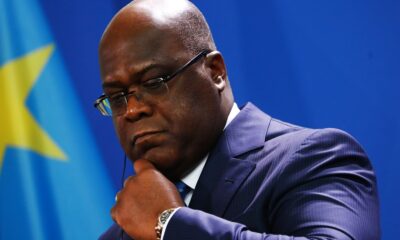

How South Africa, US elections could shape Tshisekedi’s bread in Kinshasa, By Charles Onyango-Obbo
Strictly Personal
Air Peace, capitalism and national interest, By Dakuku Peterside
Published
1 week agoon
April 16, 2024
Nigerian corporate influence and that of the West continue to collide. The rationale is straightforward: whereas corporate activity in Europe and America is part of their larger local and foreign policy engagement, privately owned enterprises in Nigeria or commercial interests are not part of Nigeria’s foreign policy ecosystem, neither is there a strong culture of government support for privately owned enterprises’ expansion locally and internationally.
The relationship between Nigerian businesses and foreign policy is important to the national interest. When backing domestic Nigerian companies to compete on a worldwide scale, the government should see it as a lever to drive foreign policy, and national strategic interest, promote trade, enhance national security considerations, and minimize distortion in the domestic market as the foreign airlines were doing, boost GDP, create employment opportunities, and optimize corporate returns for the firms.
Admitted nations do not always interfere directly in their companies’ business and commercial dealings, and there are always exceptions. I can cite two areas of exception: military sales by companies because of their strategic implications and are, therefore, part of foreign and diplomatic policy and processes. The second is where the products or routes of a company have implications for foreign policy. Air Peace falls into the second category in the Lagos – London route.
Two events demonstrate an emerging trend that, if not checked, will disincentivize Nigerian firms from competing in the global marketplace. There are other notable examples, but I am using these two examples because they are very recent and ongoing, and they are typological representations of the need for Nigerian government backing and support for local companies that are playing in a very competitive international market dominated by big foreign companies whose governments are using all forms of foreign policies and diplomacy to support and sustain.
The first is Air Peace. It is the only Nigerian-owned aviation company playing globally and checkmating the dominance of foreign airlines. The most recent advance is the commencement of flights on the Lagos – London route. In Nigeria, foreign airlines are well-established and accustomed to a lack of rivalry, yet a free-market economy depends on the existence of competition. Nigeria has significantly larger airline profits per passenger than other comparable African nations. Insufficient competition has resulted in high ticket costs and poor service quality. It is precisely this jinx that Air Peace is attempting to break.
On March 30, 2024, Air Peace reciprocated the lopsided Bilateral Air Service Agreement, BASA, between Nigeria and the United Kingdom when the local airline began direct flight operations from Lagos to Gatwick Airport in London. This elicited several reactions from foreign airlines backed by their various sovereigns because of their strategic interest. A critical response is the commencement of a price war. Before the Air Peace entry, the price of international flight tickets on the Lagos-London route had soared to as much as N3.5 million for the economy ticket. However, after Air Peace introduced a return economy class ticket priced at N1.2 million, foreign carriers like British Airways, Virgin Atlantic, and Qatar Airways reduced their fares significantly to remain competitive.
In a price war, there is little the government can do. In an open-market competitive situation such as this, our government must not act in a manner that suggests it is antagonistic to foreign players and competitors. There must be an appearance of a level playing field. However, government owes Air Peace protection against foreign competitors backed by their home governments. This is in the overall interest of the Nigerian consumer of goods and services. Competition history in the airspace works where the Consumer Protection Authority in the host country is active. This is almost absent in Nigeria and it is a reason why foreign airlines have been arbitrary in pricing their tickets. Nigerian consumers are often at the mercy of these foreign firms who lack any vista of patriotism and are more inclined to protect the national interest of their governments and countries.
It would not be too much to expect Nigerian companies playing globally to benefit from the protection of the Nigerian government to limit influence peddling by foreign-owned companies. The success of Air Peace should enable a more competitive and sustainable market, allowing domestic players to grow their network and propel Nigeria to the forefront of international aviation.
The second is Proforce, a Nigerian-owned military hardware manufacturing firm active in Rwanda, Chad, Mali, Ghana, Niger, Burkina Faso, and South Sudan. Despite the growing capacity of Proforce in military hardware manufacturing, Nigeria entered two lopsided arrangements with two UAE firms to supply military equipment worth billions of dollars , respectively. Both deals are backed by the UAE government but executed by UAE firms.
These deals on a more extensive web are not unconnected with UAE’s national strategic interest. In pursuit of its strategic national interest, India is pushing Indian firms to supply military equipment to Nigeria. The Nigerian defence equipment market has seen weaker indigenous competitors driven out due to the combination of local manufacturers’ lack of competitive capacity and government patronage of Asian, European, and US firms in the defence equipment manufacturing sector. This is a misnomer and needs to be corrected.
Not only should our government be the primary customer of this firm if its products meet international standards, but it should also support and protect it from the harsh competitive realities of a challenging but strategic market directly linked to our national military procurement ecosystem. The ability to produce military hardware locally is significant to our defence strategy.
This firm and similar companies playing in this strategic defence area must be considered strategic and have a considerable place in Nigeria’s foreign policy calculations. Protecting Nigeria’s interests is the primary reason for our engagement in global diplomacy. The government must deliberately balance national interest with capacity and competence in military hardware purchases. It will not be too much to ask these foreign firms to partner with local companies so we can embed the technology transfer advantages.
Our government must create an environment that enables our local companies to compete globally and ply their trades in various countries. It should be part of the government’s overall economic, strategic growth agenda to identify areas or sectors in which Nigerian companies have a competitive advantage, especially in the sub-region and across Africa and support the companies in these sectors to advance and grow to dominate in the African region with a view to competing globally. Government support in the form of incentives such as competitive grants ,tax credit for consumers ,low-interest capital, patronage, G2G business, operational support, and diplomatic lobbying, amongst others, will alter the competitive landscape. Governments and key government agencies in the west retain the services of lobbying firms in pursuit of its strategic interest.
Nigerian firms’ competitiveness on a global scale can only be enhanced by the support of the Nigerian government. Foreign policy interests should be a key driver of Nigerian trade agreements. How does the Nigerian government support private companies to grow and compete globally? Is it intentionally mapping out growth areas and creating opportunities for Nigerian firms to maximize their potential? Is the government at the domestic level removing bottlenecks and impediments to private company growth, allowing a level playing field for these companies to compete with international companies?
Why is the government patronising foreign firms against local firms if their products are of similar value? Why are Nigerian consumers left to the hands of international companies in some sectors without the government actively supporting the growth of local firms to compete in those sectors? These questions merit honest answers. Nigerian national interest must be the driving factor for our foreign policies, which must cover the private sector, just as is the case with most developed countries. The new global capitalism is not a product of accident or chance; the government has choreographed and shaped it by using foreign policies to support and protect local firms competing globally. Nigeria must learn to do the same to build a strong economy with more jobs.
Strictly Personal
This is chaos, not governance, and we must stop it, By Tee Ngugi
Published
2 weeks agoon
April 10, 2024
The following are stories that have dominated mainstream media in recent times. Fake fertiliser and attempts by powerful politicians to kill the story. A nation of bribes, government ministries and corporations where the vice is so routine that it has the semblance of policy. Irregular spending of billions in Nairobi County.
Billions are spent in all countries on domestic and foreign travel. Grabbing of land belonging to state corporations, was a scam reminiscent of the Kanu era when even public toilets would be grabbed. Crisis in the health and education sectors.
Tribalism in hiring for state jobs. Return of construction in riparian lands and natural waterways. Relocation of major businesses because of high cost of power and heavy taxation. A tax regime that is so punitive, it squeezes life out of small businesses. Etc, ad nauseam.
To be fair, these stories of thievery, mismanagement, negligence, incompetence and greed have been present in all administrations since independence.
However, instead of the cynically-named “mama mboga” government reversing this gradual slide towards state failure, it is fuelling it.
Alternately, it’s campaigning for 2027 or gallivanting all over the world, evoking the legend of Emperor Nero playing the violin as Rome burned.
A government is run based on strict adherence to policies and laws. It appoints the most competent personnel, irrespective of tribe, to run efficient departments which have clear-cut goals.
It aligns education to its national vision. Its strategies to achieve food security should be driven by the best brains and guided by innovative policies. It enacts policies that attract investment and incentivize building of businesses. It treats any kind of thievery or negligence as sabotage.
Government is not a political party. Government officials should have nothing to do with political party matters. They should be so engaged in their government duties that they literally would not have time for party issues. Government jobs should not be used to reward girlfriends and cronies.
Government is exhausting work undertaken because of a passion to transform lives, not for the trappings of power. Government is not endless campaigning to win the next election. To his credit, Mwai Kibaki left party matters alone until he had to run for re-election.
We have corrupted the meaning of government. We have parliamentarians beholden to their tribes, not to ideas.
We have incompetent and corrupt judges. We have a civil service where you bribe to be served. Police take bribes to allow death traps on our roads. We have urban planners who plan nothing except how to line their pockets. We have regulatory agencies that regulate nothing, including the intake of their fat stomachs.
We have advisers who advise on which tenders should go to whom. There is no central organising ethos at the heart of government. There is no sense of national purpose. We have flurries of national activities, policies, legislation, appointments which don’t lead to meaningful growth. We just run on the same spot.
Tee Ngugi is a Nairobi-based political commentator
EDITOR’S PICK
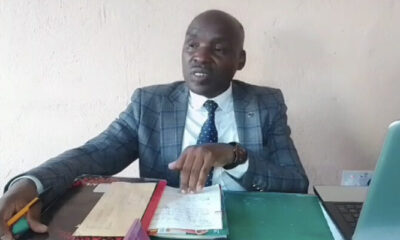

Luapula businessman, Munsanje, reflects on media freedoms and freedom of expression
As stakeholder engagement intensifies regarding the ongoing project to amplify voices on media freedom, freedom of expression, and digital rights,...
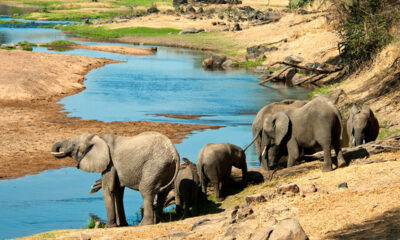

World Bank stops tourism fund to Tanzania’s Ruaha park. Here’s why
A spokesperson for the World Bank said on Wednesday that the lender had stopped all new payments from a $150...


‘It would be risky to release Binance executive from custody risky’, Nigerian govt says
Nigeria’s anti-corruption agency, the Economic and Financial Crimes Commission (EFCC), believes admitting the detained executive of cryptocurrency firm, Binance Holdings...
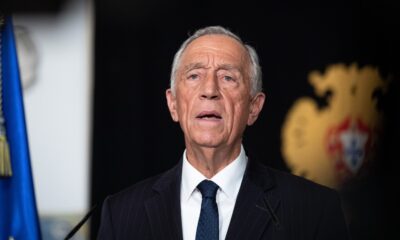

President de Sousa insists Portugal must ‘pay costs’ of slavery, colonial crimes
Following recent conversations around reparations to countries with colonial heritage, Portuguese President, Marcelo Rebelo de Sousa, has added his voice...


Nigeria’s antigraft agency EFCC may try 300 forex racketeers
The Economic and Financial Crimes Commission (EFCC), Nigeria’s anti-corruption body, could go after 300 forex criminals who trade on a...


Institute calls for responsible social media usage among youths
Smart Zambia Institute has reiterated the importance of youths to use social media responsibly. Senior Business Applications Officer at the...
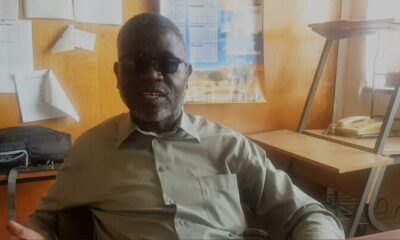

Digital Rights: Policy enthusiast, Jere, advocates self-regulation as alternative to govt regulations
Copperbelt businessman and mining policy advocate, George Jere, has highlighted the importance of self-regulation in the expanding digital media landscape,...


Dangote refinery drops diesel price further, but the wait continues for retail consumers
Barely weeks after crashing the prices of diesel and aviation fuel by about 30% in the country, Nigeria’s private Dangote...
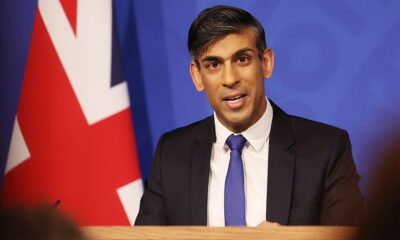

British PM Sunak remains adamant over migration deal with Rwanda
British Prime Minister, Rishi Sunak, has remained adamant on the controversial migration deal, promising to start sending asylum seekers to...


Egypt reclaims 3,400-year-old stolen statue of King Ramses II
Egypt has received a 3,400-year-old statue depicting the head of King Ramses II that was stolen and smuggled out of...
Trending
-
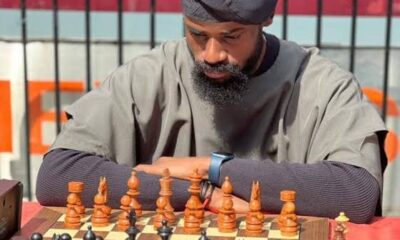
 Behind the News2 days ago
Behind the News2 days agoBehind the News: All the backstories to our major news this week
-

 Culture20 hours ago
Culture20 hours agoEgypt reclaims 3,400-year-old stolen statue of King Ramses II
-

 Metro1 day ago
Metro1 day agoNigerian govt shuts Chinese supermarket over ‘no-Nigerian shopper’ allegation
-

 VenturesNow1 day ago
VenturesNow1 day agoNigeria wants $2.25 billion World Bank loan



1 Comment